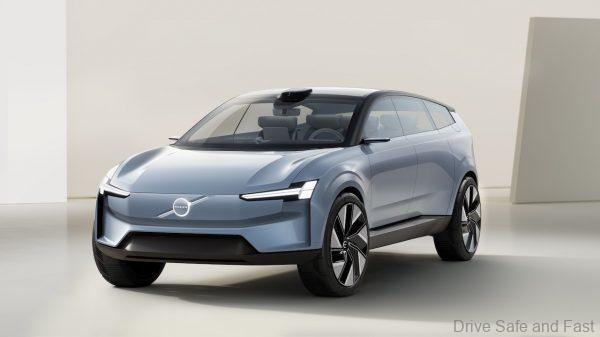Volvo Cars To Open Dedicated Electric Vehicle Plant in Slovakia
Volvo Cars’ third plant in Europe will be in Kosice, Slovakia.
Volvo Cars Torslanda and Ghent plants are now being joined by a third European car plant in Slovakia. Construction of the Kosice plant in the Eastern part of Slovakia will commence in 2023, with equipment and production lines meant to come in the year after. However, Volvo only expects its next generation of electric vehicles to go into production there in 2026.

With Northern and Western Europe covered by the Torslanda (Sweden) and Ghent (Belgium) plants, the Kosice (Slovakia) plant closes the triangle around Volvo Cars’ largest sales region. The location features good logistical and transport links to the rest of the continent and has access to a reputable supplier base. Other car brands that have factories in Slovakia include the Volkswagen Group, PSA (now Stellantis), Kia Motors, and Jaguar Land Rover. Luxury SUVs such as the Volkswagen Toureg, Audi Q7, Porsche Cayenne and Land Rover Discovery are all made in Slovakia. Volvo Cars were also enticed by the incentives offered up by the Slovak government to locate their first new plant in Europe for 6 decades in Kosice and provide thousands of new jobs in the region.

The plant will be climate neutral from day one of its operation and will only build electric vehicles. This is in line with Volvo Cars’ goal of becoming fully-electric by 2030 and climate neutral by 2040 while maintaining growth.

Once the facility is up and running, it will have an annual capacity of 250,000 cars per year, with room for expansion in the future.

Here’s the press release with more.
PRESS RELEASE
Volvo Cars announces today it will establish a third manufacturing plant in Europe, positioning the company well to meet the continued demand from its customers for electric cars and capture future growth potential.
The new state-of-the-art plant will be climate neutral and build only electric cars, underpinning the company’s ambition to become fully electric by 2030 and climate neutral by 2040, and to continue expanding its global production capacity to match its growth ambitions.
By picking Slovakia as the location for its new plant, Volvo Cars creates a European triangle of manufacturing covering its largest sales region – complementing the Ghent plant (Belgium) in western Europe and the Torslanda plant (Sweden) in northern Europe.
The new facility represents an investment of around EUR 1.2 billion (1). It will be located close to Kosice, in the eastern part of Slovakia, where it will benefit from a well-established automotive supply chain as it becomes the fifth car plant in the country.
Volvo Cars has an ambition to move towards annual sales of 1.2 million cars by mid-decade, which it aims to meet with a global manufacturing footprint spanning Europe, the US and Asia.
Construction of the Kosice plant is planned to start in 2023, with equipment and production lines installed during 2024. Series production of next-generation, pure electric Volvo cars is scheduled to start in 2026.
In line with Volvo Cars’ ambition to have climate neutral manufacturing operations by 2025, the plant will use only climate neutral energy. It will also be designed to be a leader in sustainable and efficient premium electric car production with an optimised layout and logistics flow, while Volvo Cars aims for the highest global standards in energy and environmental efficiency.
As for the location, Kosice offers good logistical and transport links to the rest of Europe and access to a good supplier base. The incentives offered by the Slovak government has also been a key factor in the decision to locate the plant in Kosice.
The facility is designed to produce up to 250,000 cars per year and is expected to provide several thousand new jobs in the region. The site also allows for further expansion of the plant in future.
The establishment of the Kosice plant represents the first new European manufacturing site for Volvo Cars for almost 60 years. The Torslanda plant was opened in 1964, while the Ghent factory followed a year later. Together, these facilities can produce 600,000 cars per year.